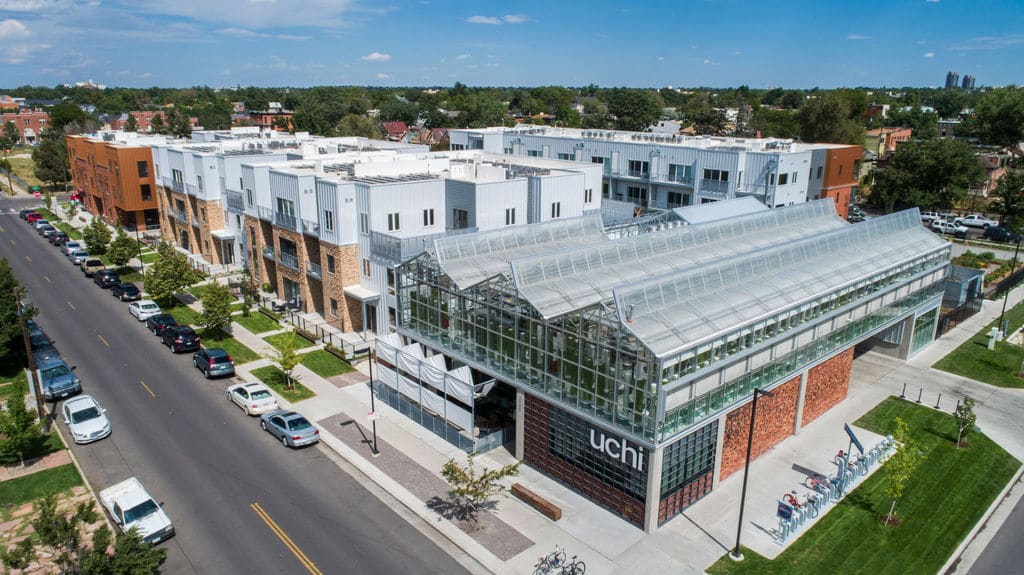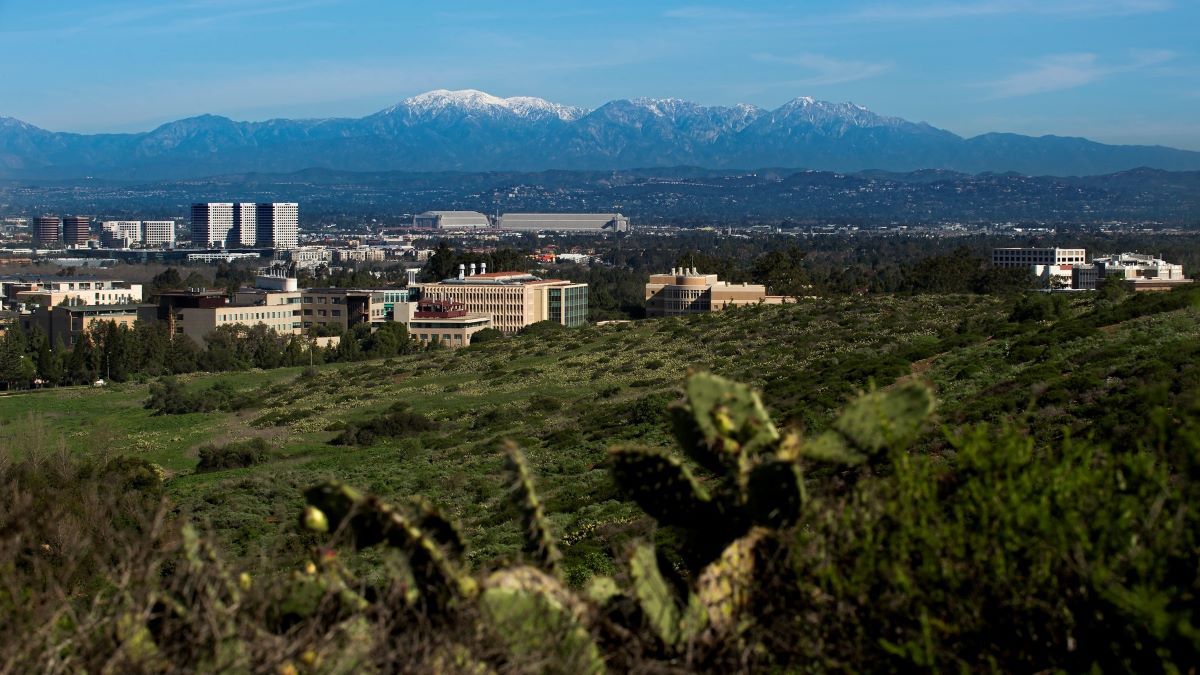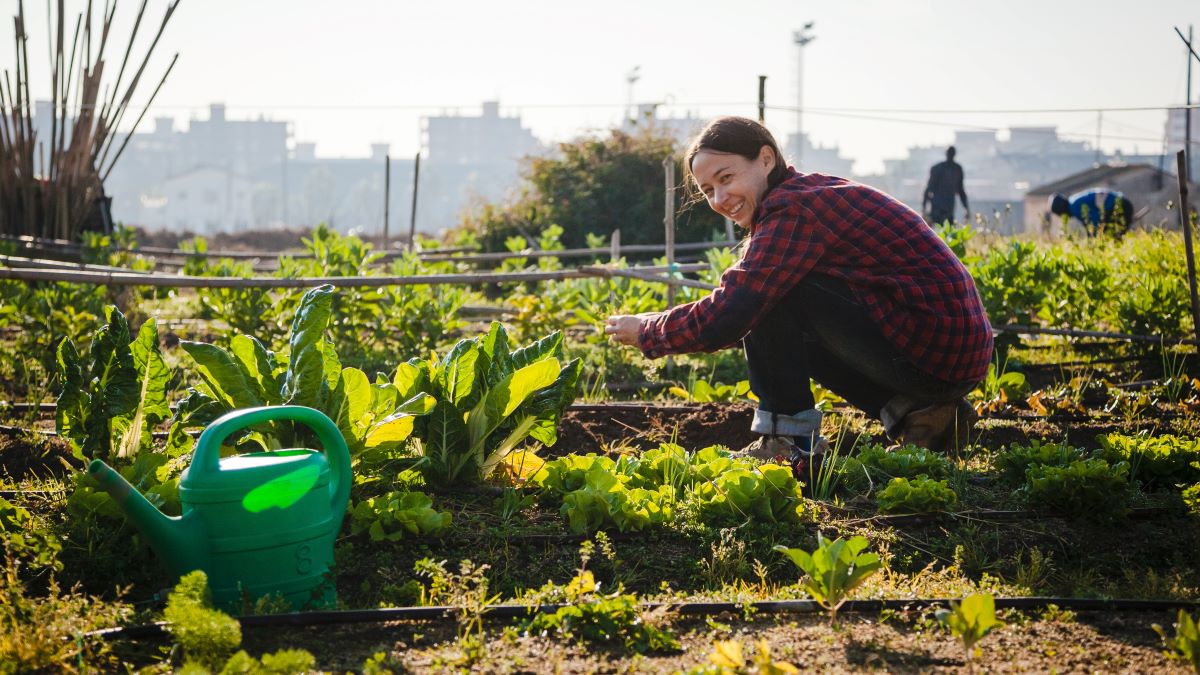What is an Agrihood? Why are They Sustainable?
Agrihoods are residential housing developments with a professionally managed farm as its centerpiece. Considered healthy-lifestyle communities, agrihoods are designed with a purpose — to connect people with the land — not just for agricultural activities, but to also protect and support conservation of farmlands, forests, watersheds, and wildlife habitat.
Agrihood communities, which can be near cities or in rural settings, can be comprised of up to 70 percent open space, including land dedicated to agricultural activities and animal pastures. Residents not only benefit from access to fresh, sustainably sourced food, but they also enjoy the close connection to the farm and participating in planting and harvesting.

Agrihood Sustainability
Many agrihoods are built on heritage farmland, and where possible, developers hire original farm family members to help plan and manage agricultural operations. Instead of displacing farmland for housing development, agrihood developers build a community farm thrive by providing capital and infrastructure, and by supporting the local economy.
The agrihood concept is relatively new, and homes are sustainably built with energy conservation features. These may include “net zero” capability, solar power, geothermal energy, Energy Star appliances, and fiber-optic technology. Many developments are LEED-certified, and agrihoods throughout the
Currently, there are about 100 agrihood communities throughout the United States, with many more planned in the next few years. Surprisingly, you will find agrihoods within close proximity to metropolitan areas. “Urban agrihoods” are generally mixed-use, walkable communities that include rental apartments, retail shops, office space, and restaurants.
Prime Examples of Sustainable Agrihoods
S*Park, Denver, Colorado
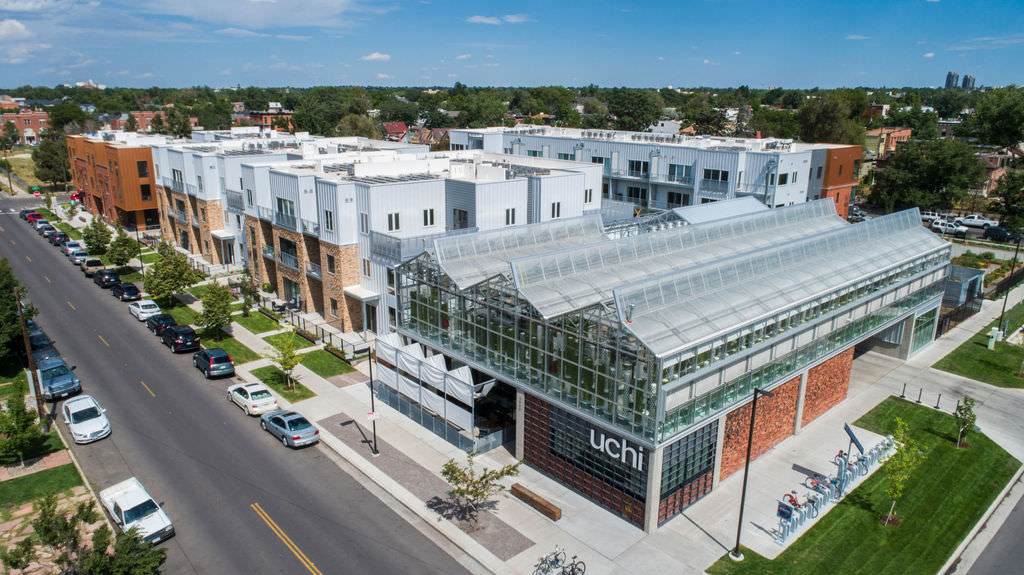
S*Park in Denver, Colorado. Photo courtesy: Jess Blackwell for S*Park
S*Park in Denver, Colorado, also known as “Sustainability Park,” is a condominium complex that utilizes solar power, green space, renewable energy sources, stormwater management, composting, high-efficiency electrical systems, and sustainable construction throughout. Residents in this urban agrihood have access to a 7,200 square-foot greenhouse with year-round organic food production, along with 10,000 square feet of urban gardens. Parking is below street level and includes charging stations for electric cars.
Located less than 1 mile from Downtown Denver, S*Park boasts a walk score of 96 and a bike score of 97. It’s only a short stroll to more than 20 restaurants, 11 galleries, 10 boutiques, 7 breweries, 10 coffee shops, 5 music venues, 1 hotel, and a 350,000 square-foot neighborhood park. After completing graduate studies in sustainable real estate development, S*Park resident and development associate Joe Latson said, “My wife and I wanted to live at S*Park, because it is a real example of what urban living can be.”
Olivette, Ashville, North Carolina
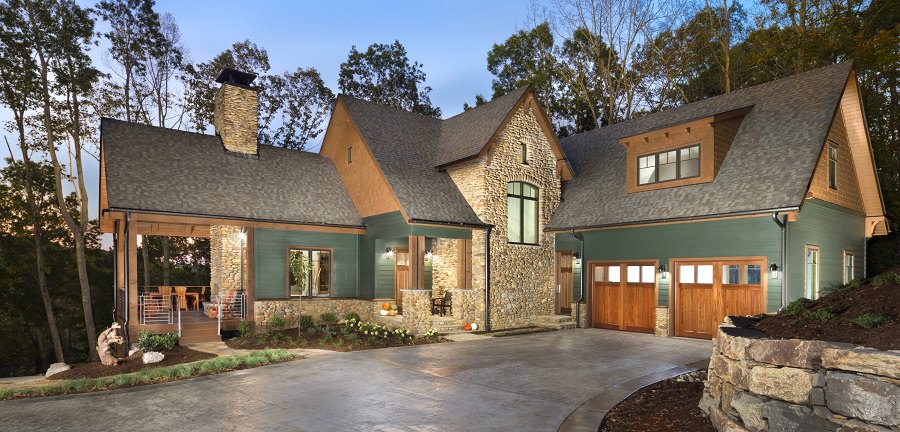
Olivette in Ashville, North Carolina. Photo courtesy: Olivette
Winner of the 2019 Gold Award for “Best Green Community in the U.S.” by the National Association of Home Builders, Olivette is a 346-acre planned community and historic farm, located along the French Broad River, just 6.7 miles from downtown Asheville, North Carolina. Olivette has also won three awards from North Carolina Home Builders including the 2018 and 2019 Best Sustainable Community Award, and the 2018 and 2019 NC Community of the Year.
Olivette residents have access to seven acres of riverfront parkland, a large private river island, several miles of walking trails, community gardens, a pavilion, amphitheater, and many events and activities.
The 6-acre organic farm utilizes the highest level of sustainable growing practices and offers many thoughtful conveniences to residents. Award-winning homes offer geothermal heating and cooling, solar panels, fiberoptic technology, and energy-efficient appliances. Founding Partner Alison Smith reports that “multiple homes as large as 3,000 square feet have achieved net-zero or an extremely low HERS rating for energy consumption.”
Freehold Communities: Orchard Ridge & Miralon
Freehold Communities is a nationwide developer of master-planned communities, including several agrihoods which have received dozens of national awards, including best sustainable landscape design. Orchard Ridge in Liberty Hill, Texas, has integrated its orchards, edible landscapes, and community farm within a true Texas Hill Country natural environment.
Environmental considerations for the treatment of wildlife, rivers, basins, creeks, and ponds earned Orchard Ridge the prestigious Gold Nugget Award for Best Landscape Architecture for a New Community.
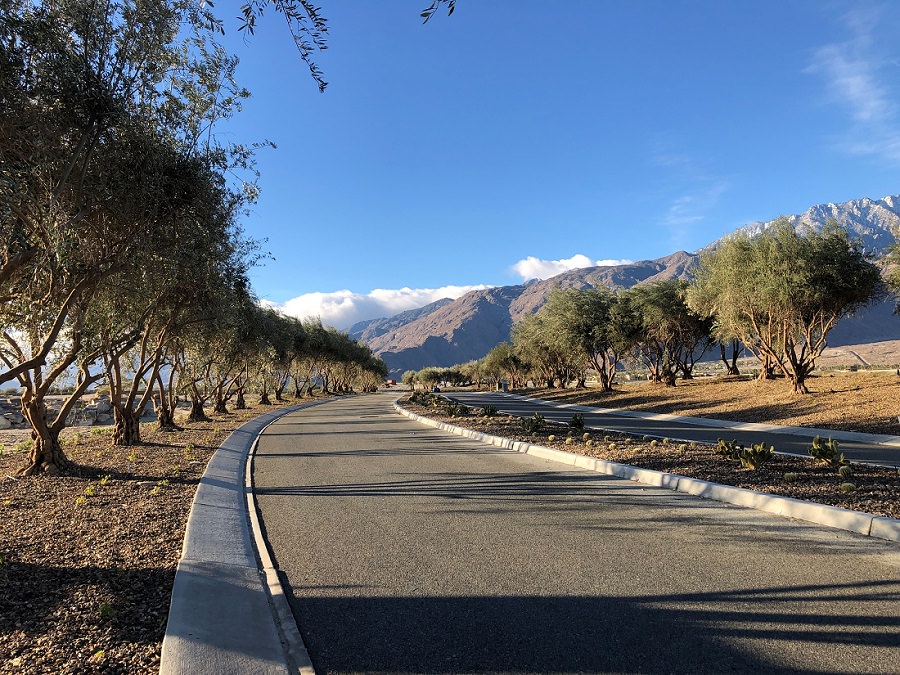
Mature olive trees at Miralon, Palm Springs, California. Photo courtesy: Freehold Communities
Another master-planned community from Freehold Communities, Miralon in Palm Springs, California, served as “A Case Study in the Desert” for a national Building Sustainable Neighborhoods report for Neighborhoods USA. The community devoted 70 percent of its open space to a working grove of 7,000 olive trees, replacing a previously built golf course.
Agricultural components also include community gardens, citrus groves, fruit, and nut trees. The 1,150 modernist-inspired residences all have solar energy and other energy conservation features. Core principles for sustainability include landscaping restrictions, impervious surface limitations, water efficiency, carbon sequestration from olive trees and groundcover, composting, added shade, and dark sky compliance.
About the Author
Anna DeSimone is the author of Welcome to the Agrihood: Housing, Shopping, and Gardening for a Farm-to-Table Lifestyle and Housing Finance 2020: New Mortgage Programs for the New Generation of Homebuyers. She has authored more than 40 professional guidebooks on the topic of mortgage origination, compliance, and fair lending. Learn more at www.annadesimone.net.
The post Agrihoods: The Intersection of Sustainable Farming & Real Estate appeared first on Earth 911.

